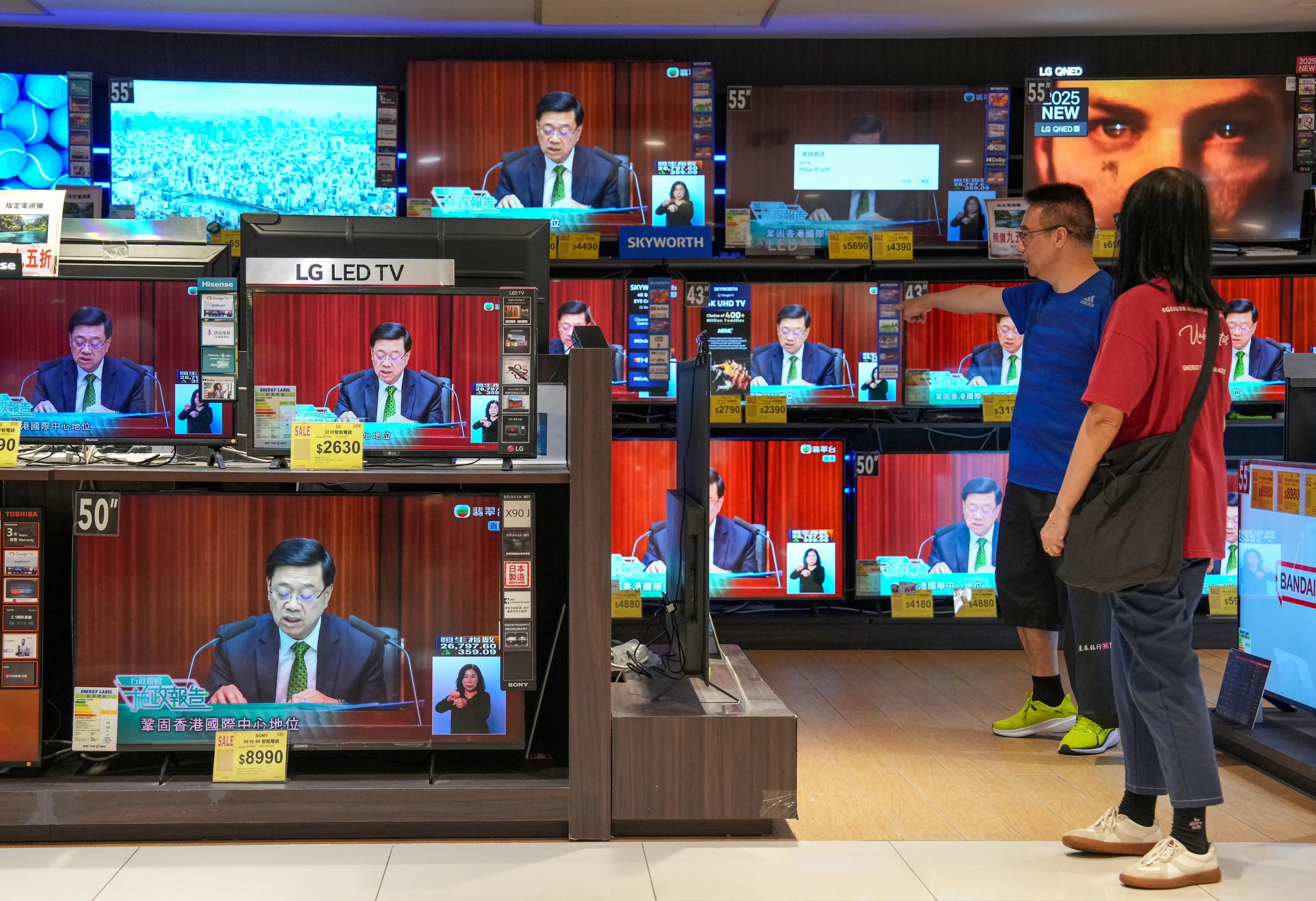By Elizabeth Cheung
Copyright scmp

Hong Kong’s leader has promised to assist local media organisations in expanding their networks beyond the city, while pledging not to interfere in their operations.
Chief Executive John Lee Ka-chiu on Wednesday made a rare move by mentioning assistance for the media in his policy address, and also later acknowledged the challenges facing the sector.
“The government will assist the local media to expand their networks beyond Hong Kong, telling the good stories of Hong Kong,” he said in his policy blueprint.
Elaborating on the measure during a press conference after his speech, Lee said he hoped to promote local media, which he described as professional and of a high standard, to places outside Hong Kong.
“Hong Kong has a lot of good things to offer to the world, one being the media,” Lee said.
“What I intend to do is, we do it slowly and progressively because this is the first time. I think of working together to tell the good Hong Kong story through different sectors, participants and leaders,” he said.
But Lee stressed that the government would not interfere in their work.
“What I am trying to do is open the door for the media to do their own things. I will not interfere with what they do,” he said.
“I think our media are professional enough to impress their partners overseas,” Lee said, adding that he saw them as being of “very high standard” and that he had faith in them.
But the city leader said he recognised the difficulties faced by local media outlets.
“I also find the media industry is facing a lot of challenges,” he said. “I want to expand markets for them so that they will have new business opportunities.”
He said the move was similar to what he had done for other businesses.
“I want the media to know that the government takes care of all sectors,” he said.
The rise of tech platforms, such as social media and search engines, has affected the business of traditional media companies, most notably by draining them of advertising revenue and audiences.
Lee also said that he believed the media would be helpful in telling the “good and true” Hong Kong stories through their networks, and he would like to help them do so if he could.
A source highlighted the importance of “delivering good Hong Kong stories based on facts” on the government’s part and not to engage in propaganda work.
“If there is nothing good in Hong Kong, then of course there will not be any good stories for the media to tell. I trust the media will only report the truth,” the insider said, adding that the government only wants to facilitate the industry as a whole in looking for new opportunities beyond the city.
The source cited an example of how the government’s overseas trade offices could engage local media’s services for their own operations or projects, but that they would not be writing favourable content for authorities.
The Hong Kong News Executives’ Association welcomed the move, noting that local media companies were facing “unprecedented challenges” amid economic uncertainty and technology disruption, and were in urgent need of innovation and adaptation while upholding professionalism and social responsibility.
Professor Francis Lee Lap-fung of the Chinese University of Hong Kong’s school of journalism and communication said that the government’s move could be read as following in the footsteps of mainland Chinese authorities, which began promoting its media outlets to other places about 15 years ago.
Some examples include Global Times and China Global Television Network, which was previously known as CCTV-9.
The academic said he made the comparison given that helping the media was mentioned in city leader Lee’s address under the chapter of “integrating into the overall national development” and the sub-chapter of “bringing in and going global”.
Francis Lee said that media outlets could diversify their language options as part of strategies to expand overseas.
“When your target audience is not only those in Hong Kong and there is a need to deliver the good Hong Kong stories to others, the first thing to do is offer English versions,” he said.
The professor said authorities could also consider helping RTHK English, a service under the city’s only public broadcaster, get into the networks of different places, such as how BBC News programmes used to run on the channel.
He said the government would need to strike a balance on how to help while avoiding creating negative impressions.
“If there is an impression that the government is helping the general media outlets too much, this would also not be good, as the international community regards a certain level of media independence [as important],” he said.
The academic said it would be crucial for authorities to steer clear of getting involved in any editorial decisions or content choices.



